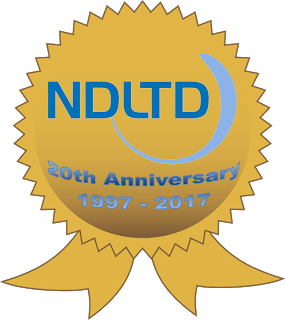Edward A. Fox Executive Director and Chairman of the Board, NDLTD August 2, 2017 Almost 30 years ago, in November 1987, a first meeting was held to explore using SGML (Standard Generalized Markup Language) for dissertations as part of the Electronic Manuscript Project. This event and others in the first decade of activities related to the Networked Digital Library of Theses and Dissertations, NDLTD (http://ndltd.org) are described in http://fox.cs.vt.edu/pub/ETD/ETD.html. Many early key events had been in the USA, including the U.S. Department of Education award by 9/1/1996 to “Improve Graduate Education with a National Digital Library of Theses and Dissertations (NDLTD).” Later in 1996, Virginia Tech decided to require electronic theses and dissertations (ETDs), and set a start date for this mandate, 1/1/1997. This marked the first instance (with hundreds to follow) of requiring ETDs at colleges and universities around the world. See a summary of how and why Virginia Tech became the first university to mandate ETD for graduate students in “ETD Celebrates 20th Anniversary” http://hdl.handle.net/10919/71365. Since it was clear that a global initiative was emerging, NDLTD was connected with its new and ongoing name, Networked Digital Library of Theses and Dissertations, managed by a steering committee, which led planning for the first ETD symposium in 1998 in Memphis, at the University of Tennessee, with 20 attendees. Subsequent years led to events in 1999 (Blacksburg, VA, at Virginia Tech, with 70), 2000 (St. Petersburg, FL, at U. of S. Florida, with 225), 2001 (Pasadena, CA, at Caltech, with 200), and 2002 (Provo, UT, at Brigham Young U., with 135). In 2003, NDLTD was incorporated in Virginia, USA, as an educational organization with 501(c)(3) non-profit status, with an international Board of Directors and a set of committees and working groups. That advance coincided with NDLTD’s first conference outside USA, in Berlin, Germany, hosted by Humboldt U., with 215 attendees (see more about ETD Conference at Humboldt-University Berlin in 2003 here). NDLTD has continued to hold annual meetings, in collaboration with various national and regional groups, so that discussion related to the global movement toward electronic theses and dissertations could grow and develop around the world. Thus, events followed in 2004 (Lexington, KY, at U. of Kentucky), 2005 (Sydney, AU, at U. of New South Wales), 2006 (Quebec CIty, CA, at University Laval), 2007 (Uppsala, Sweden), 2008 (Aberdeen, Scotland), 2009 (Pittsburgh, PA), 2010 (Austin, TX), 2011 (Cape Town, S. Africa), 2012 (Lima, Peru), 2013 (Hong Kong), 2014 (Leicester, England), 2015 (New Delhi, India), and 2016 (Lille, France). NDLTD is based on a small set of important ideas:
As a volunteer organization, NDLTD needs YOU! Please help by serving on a working group or committee, or by helping advance the local or regional activities. The ETD Initiative is based on simple ideas, but calls for collaboration and concern for students and quality, and moves forward if we are open to innovation and change, which are essential ingredients of graduate research as well as scholarly communication. There are clear benefits of ETD events to those new to the ideas, so problems can be discussed, questions answered, best practices identified, and tools/techniques shared. Likewise there are benefits to those who have worked in this arena for years, in part from the satisfaction that comes from sharing and mentoring. Even more, those with experience can address new challenges, e.g., 1) as the numbers of ETDs (now over 5 million) lead to problems of scale, and 2) as the global harvesting method calls for improved attention at all levels to quality of metadata and services as well as standardization. Please help all colleges, universities, libraries, graduate students, faculty, administrators, and researchers to move toward the time when EVERY thesis or dissertation in the world is shared in the most effective way, as openly as possible, and utilized optimally to improve humanity. |
|
|


